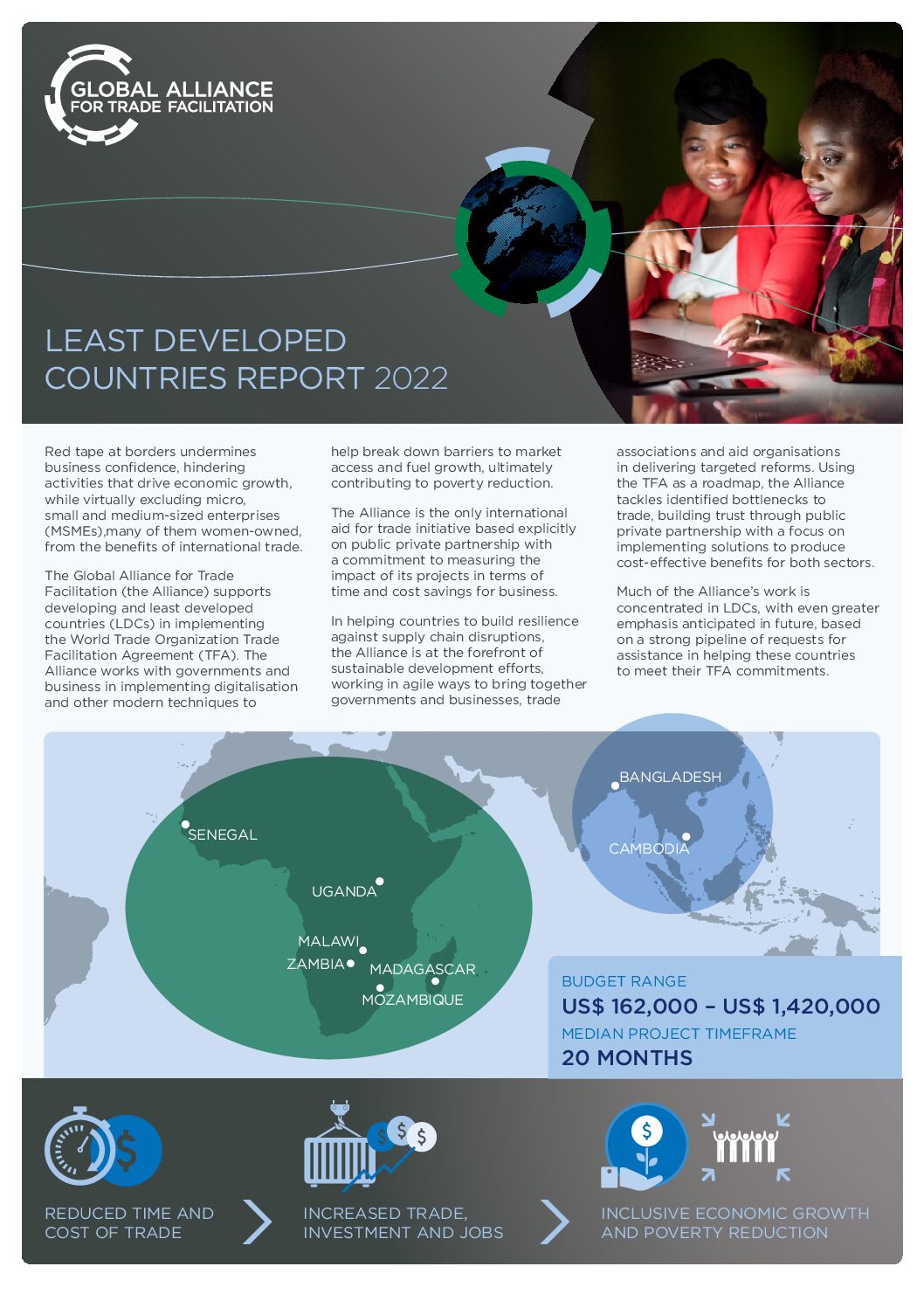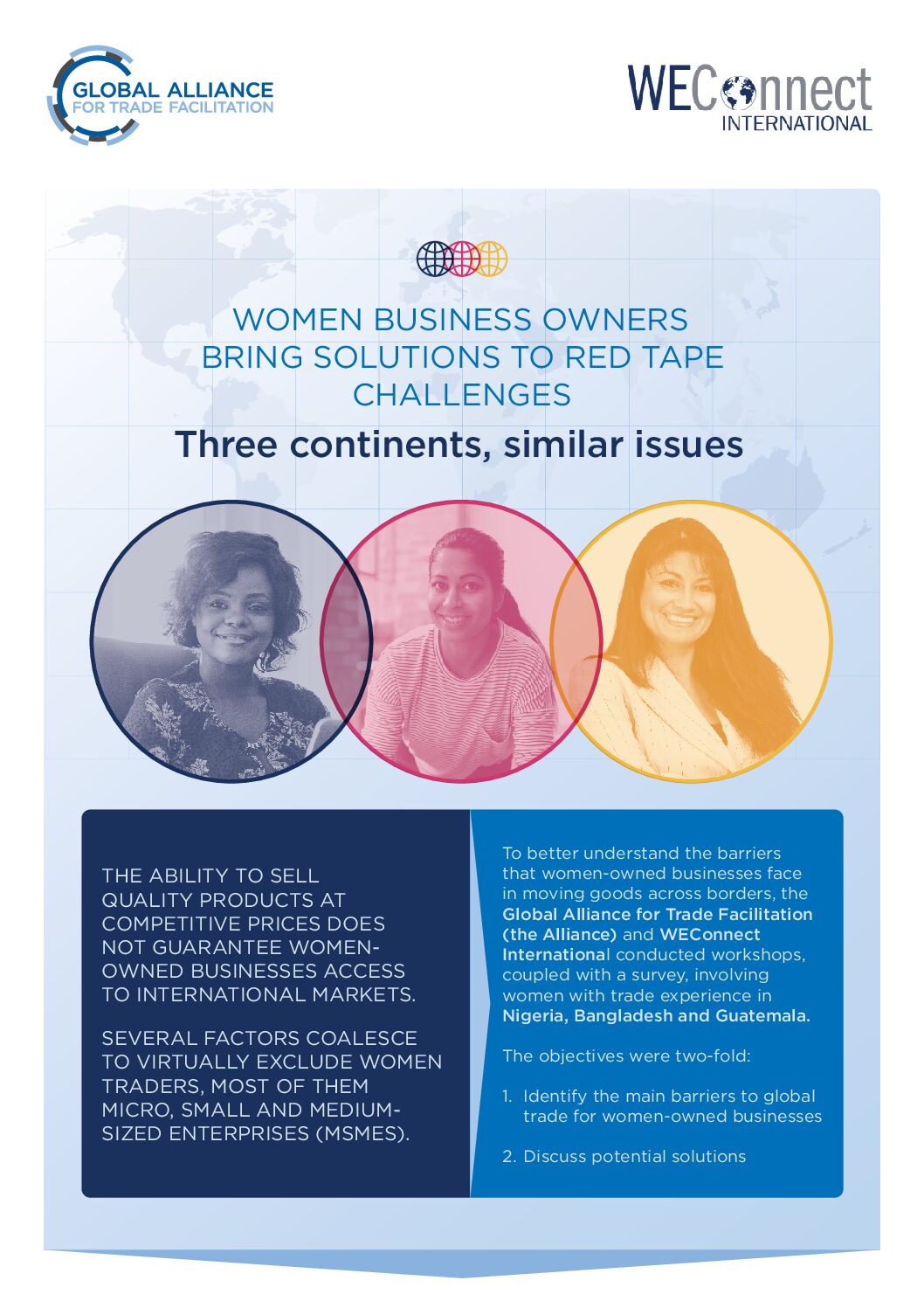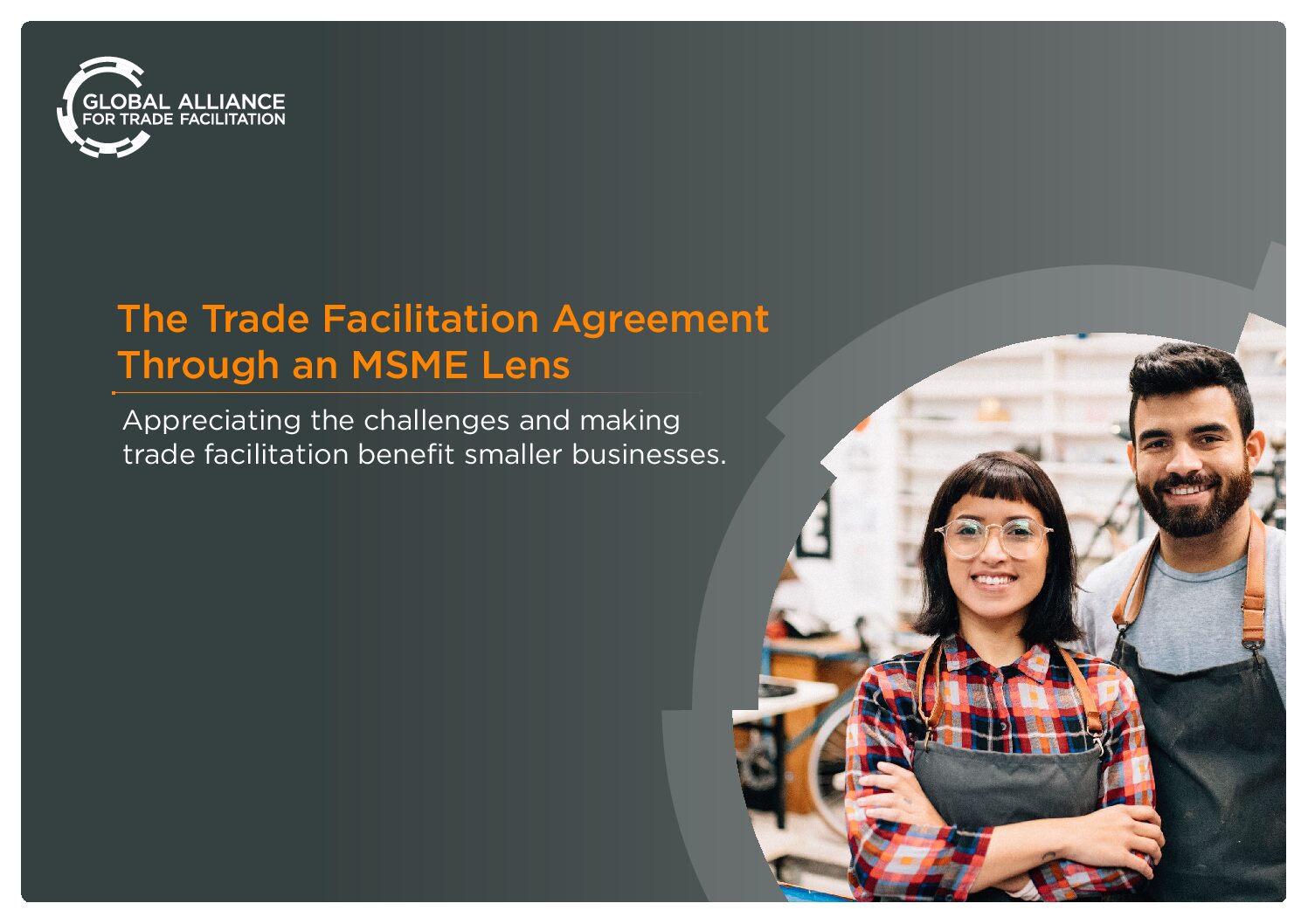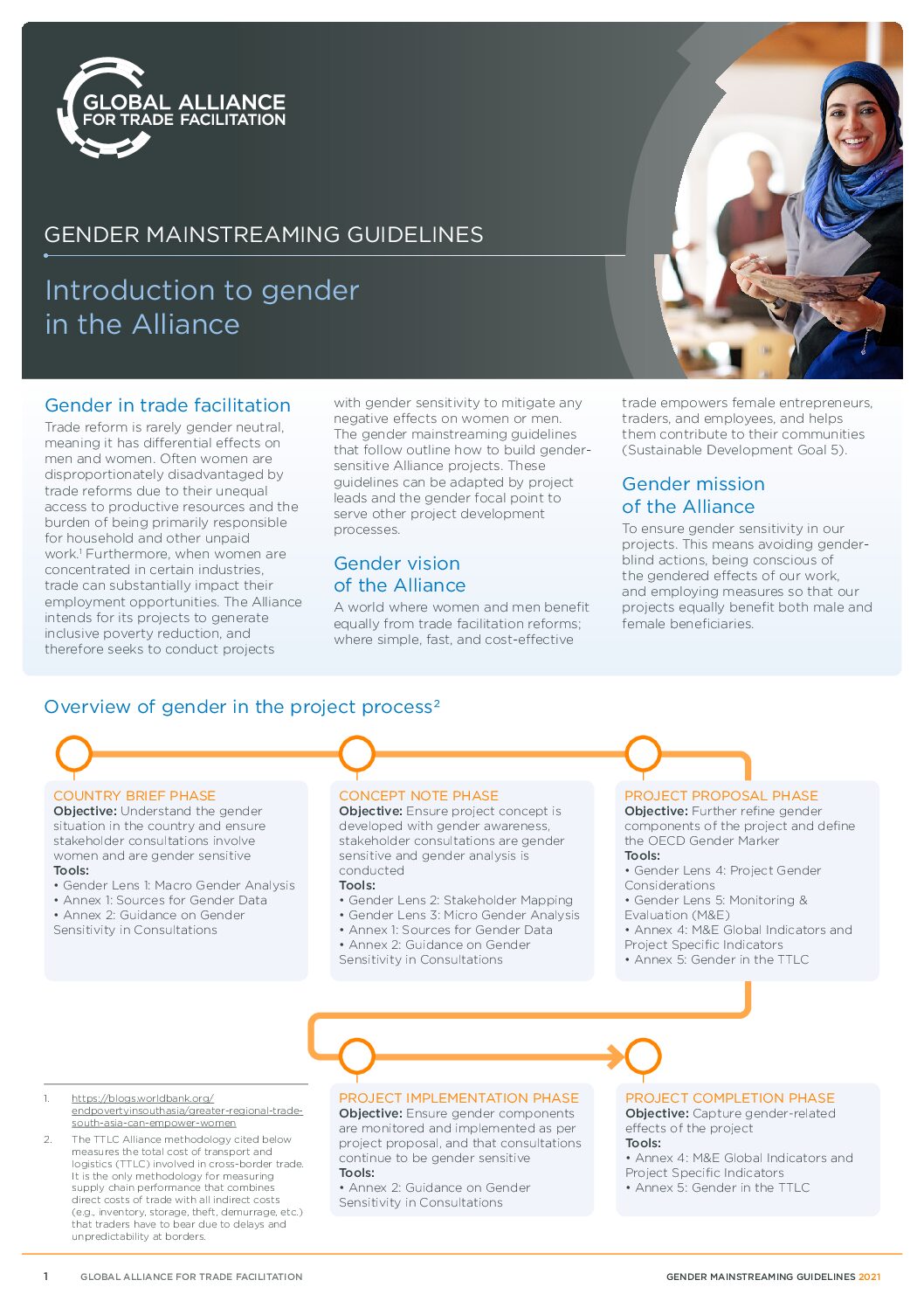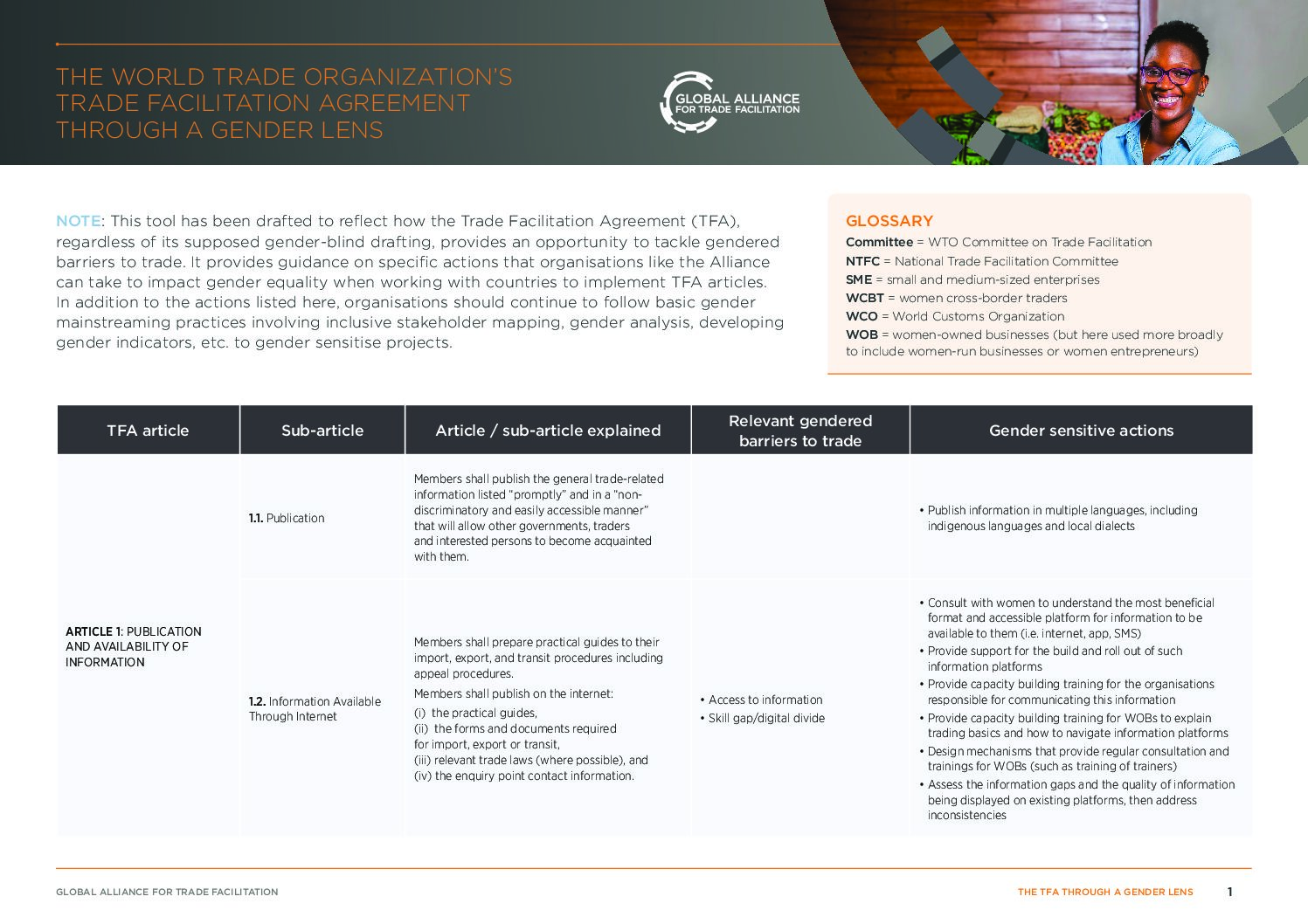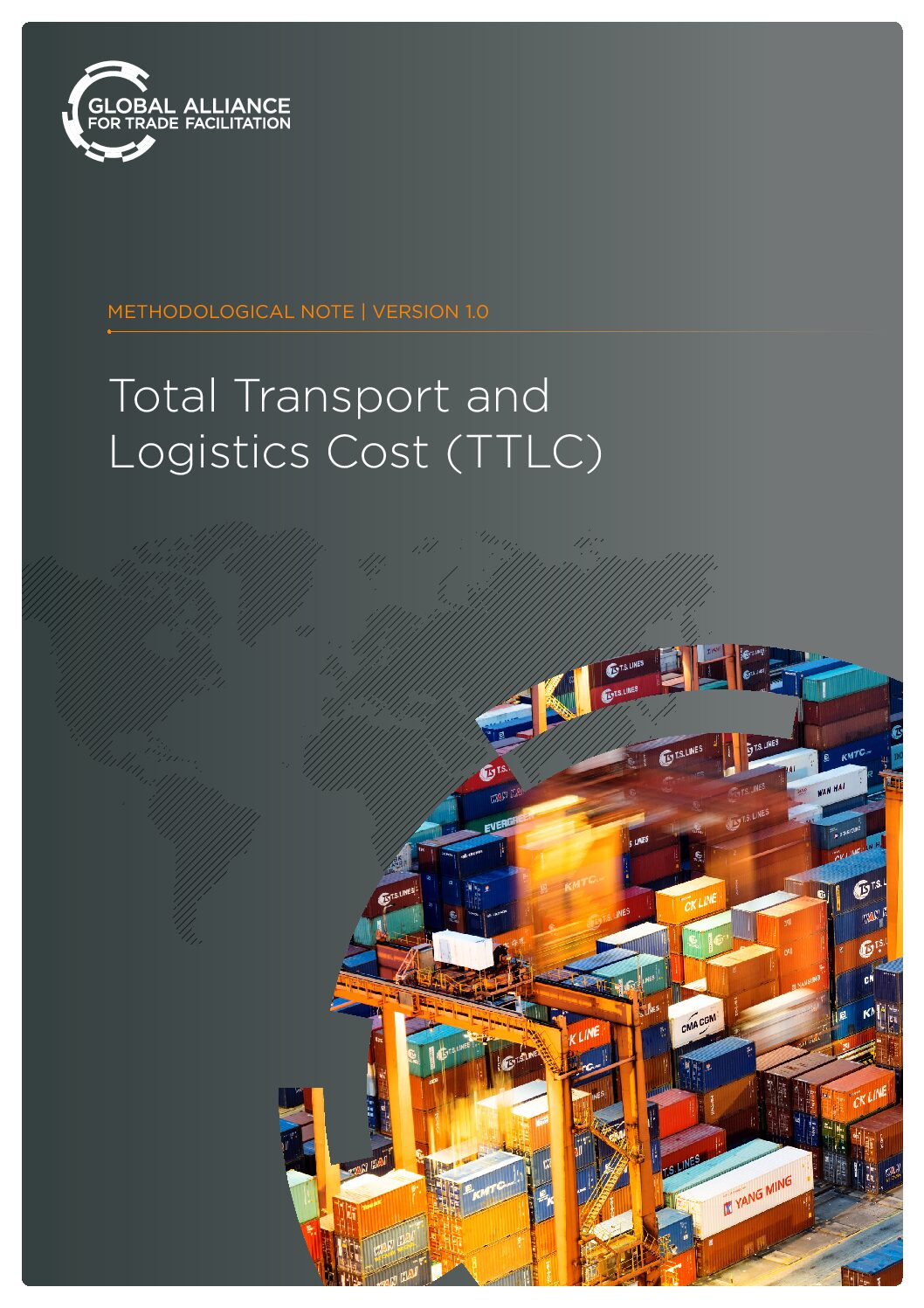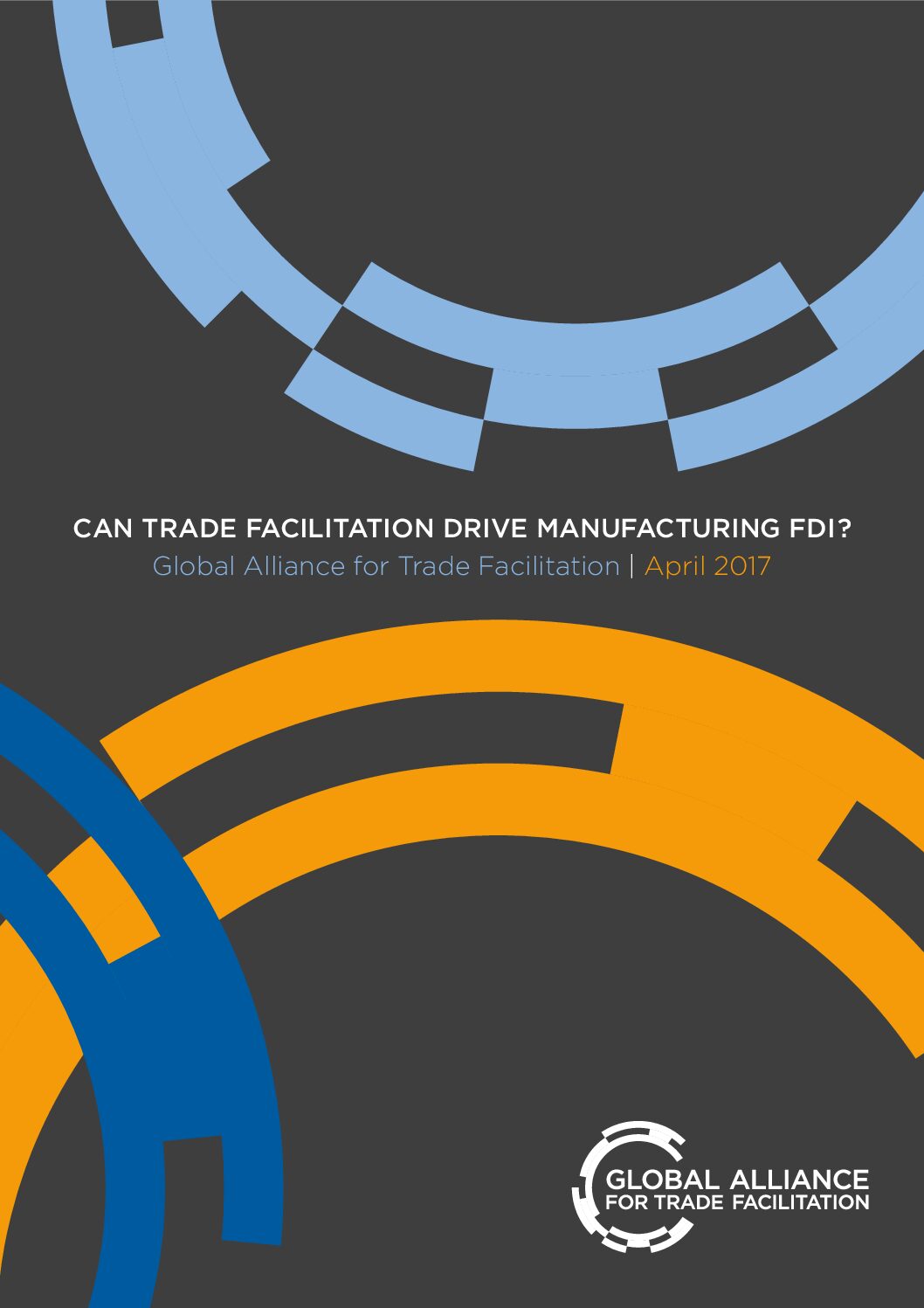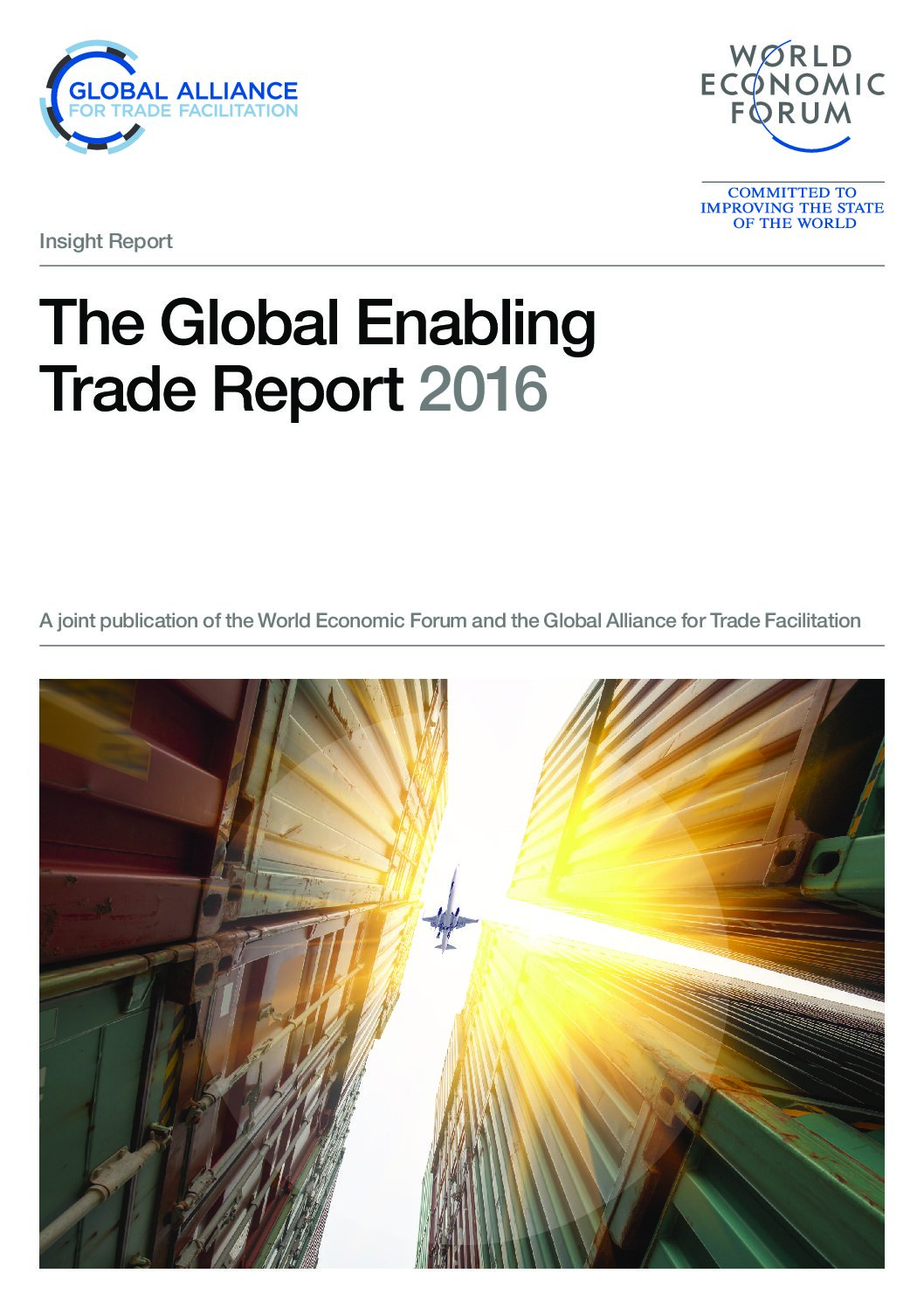
Our Papers
Least Developed Countries Report 2022
The Alliance supports developing and least developed countries (LDCs) in implementing the World Trade Organization Trade Facilitation Agreement (TFA). Much of our work is concentrated in LDCs, with even greater emphasis anticipated in future, based on a strong pipeline of requests for assistance in helping these countries to meet their TFA commitments.
Three Continents, Similar Challenges for Women Business Owners
To better understand the obstacles that women-owned businesses in developing and least-developed countries must overcome to take advantage of the opportunities afforded to participants in world markets, the Alliance and WEConnect International conducted a study involving women with trade experience in Bangladesh, Guatemala, and Nigeria.
The Trade Facilitation Agreement through an MSME lens
The Alliance’s Trade Facilitation Agreement Through an MSME Lensprovides practical guidance on actions the Alliance, policy makers, and development practitioners can take to ensure that implementation of the TFA supports MSMEs while presenting an in-depth analysis of the TFA itself and how it tackles MSME-specific challenges to international trade.
Gender Mainstreaming Guidelines
The Gender Mainstreaming Guidelines represent the Alliance’s determination to not only better understand the hurdles facing women in trade or preventing them from entering global markets, but to refine its own approaches and share its vision as a means to breaking down these seemingly intractable barriers.
The Global Alliance for Trade Facilitation today published detailed gender mainstreaming guidelines that are being applied across its projects to ensure women and men benefit equally from its support to trade reform efforts in developing countries.
The publication of its Gender Mainstreaming Guidelines represents the Alliance’s determination to not only better understand the hurdles facing women in trade or preventing them from entering global markets, but to refine its own approaches and share its vision as a means to breaking down these seemingly intractable barriers.
The Trade Facilitation Agreement (TFA) through a gender lens
The Alliance’s tool, the WTO’s Trade Facilitation Agreement (TFA) through a gender lens, provides development practitioners and implementors with an in-depth analysis of the TFA Section I Articles from a gender perspective. It shows how the TFA, regardless of its supposed gender-blind drafting, provides an opportunity to tackle gendered barriers to international trade.
Women traders are often at a disadvantage to meet the high cost and time demands of complex trading requirements. Gender-based discrimination may also discourage women from trading internationally or make trade more costly.
Total Transport and Logistics Cost (TTLC)
The Total Transport and Logistics Costs (TTLC) methodology measures the total cost of transport and logistics involved in cross-border trade. It is the only methodology for measuring supply chain performance that combines direct costs of trade with all the indirect costs (e.g. inventory, storage, theft, demurrage…) that traders have to bear due to delays and unpredictability at borders. By estimating the time and costs incurred in completing each step of the import and export supply chains, the TTLC can be used as a baseline tool to identify bottlenecks, estimate the potential returns of trade facilitation reforms, and assess the true impact of trade facilitation reforms on business.
Can trade facilitation drive manufacturing FDI?
This paper examines the relationship between the trade facilitation environment and the level of foreign direct investment (FDI). It highlights that developing economies with stronger trade facilitation environments attract high-value investments, especially in industries such as auto parts and aerospace manufacturing.
Foreign Direct Investment (FDI) has been crucial to the success of manufacturing in emerging economies in East and South East Asia. Here, FDI has been shown to have incredible potential to support job creation by supporting economies’ integration into complex global value chains. For instance, Sri Lanka has attracted over US $1 billion in manufacturing FDI since 2011. This accounted for less than one third of total investments in the country, yet constituted more than two thirds of the total job creation from FDI.
The Global Enabling Trade Report 2016
This bi-annual report, published by the World Economic Forum and the Global Alliance for Trade Facilitation, is a benchmark for governments looking to boost growth and development through trade. It captures data on the efficiency, transparency and expense associated with importing and exporting goods.
The 2016 report finds that governments are making slow progress in improving customs and borders procedures, with many small businesses and entrepreneurs cut off from the global trading system as a result. In fact, the performance gap on border administration between high and low-income economies has widened slightly in the past two years.

